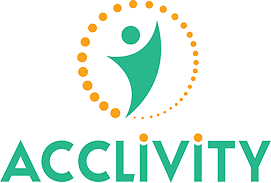The holiday season, while often a time of celebration and reflection, can also bring unique challenges for those in higher education. For administrators, the pressures of managing academic institutions don’t pause during the holidays. In fact, the end of the year can amplify stress levels, as deadlines, evaluations, and the expectations of both students and faculty converge. With mental health at the forefront, it is crucial that administrators not only manage their well-being but also support the mental health of their teams and the broader academic community.
Recognizing the Signs of Holiday Stress
The holiday season can trigger various stressors, including financial pressures, family obligations, and the pervasive need to meet year-end goals. Administrators in higher education may find themselves overwhelmed with the demands of their roles, often neglecting their mental health in the process.
- Increased anxiety and stress: A noticeable rise in stress levels, difficulty concentrating, and feeling overwhelmed are common during this time.
- Burnout: Fatigue, irritability, and a sense of detachment from work can be indicators of burnout.
- Social withdrawal: Avoidance of social interactions, even virtual ones, may signal that someone is struggling.
By recognizing these signs early, administrators can take proactive steps to address mental health concerns before they escalate.
Practical Strategies for Managing Mental Health
- Set Realistic Expectations: The holiday season can often lead to unrealistic expectations, both professionally and personally. It’s important to set achievable goals and communicate them clearly to your team. Prioritize tasks that truly need to be completed before the end of the year, and delegate where possible.
- Promote Work-Life Balance: Encourage faculty and staff to take time off and disconnect from work when possible. Lead by example by setting boundaries, such as not sending emails after hours or taking personal time for holiday activities.
- Provide Mental Health Resources: Ensure that faculty and staff are aware of the mental health resources available to them. This could include counseling services, stress management workshops, or access to meditation and mindfulness apps.
- Foster Open Communication: Create an environment where faculty and staff feel comfortable discussing their mental health. Regular check-ins can help identify those who may need additional support during this time.
For many in academia, the holiday season also serves as a time for reflection on career progress and future goals. Career coaching can be an invaluable resource for professors and administrators who feel stuck or uncertain about their next steps in higher education.
- Clarify career goals: Career coaching helps individuals identify their strengths and areas for growth, providing a clearer path forward in their academic careers.
- Improve work-life balance: Coaches can offer strategies for managing workload and stress, which is especially beneficial during high-pressure periods like the holiday season.
- Enhance leadership skills: For administrators, career coaching can help refine leadership approaches, ensuring they are effective in supporting their teams’ mental health and professional development.
As the holiday season approaches, take the time to prioritize your mental health and career development. Consider the benefits of career coaching as a tool to navigate the challenges of academia, whether you’re looking to advance your career or simply seeking a better work-life balance.
Start the new year with clarity and confidence— Contact us today to schedule a consultation and take the first step toward a more fulfilling academic journey.

